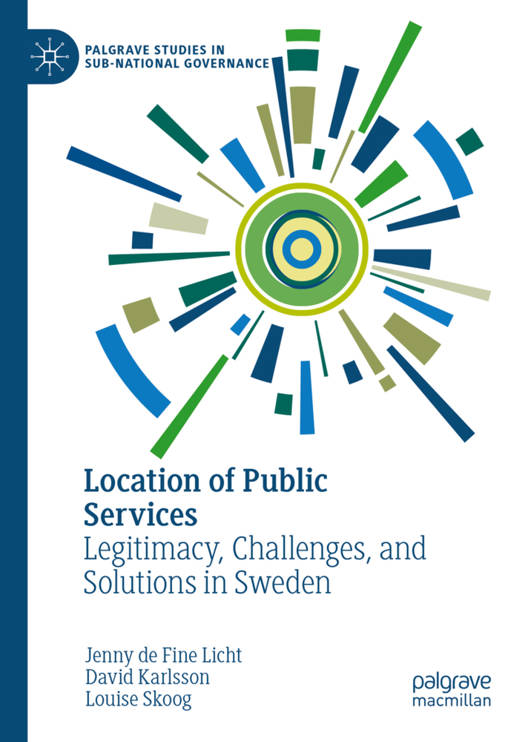
- Afhalen na 1 uur in een winkel met voorraad
- Gratis thuislevering in België vanaf € 30
- Ruim aanbod met 7 miljoen producten
- Afhalen na 1 uur in een winkel met voorraad
- Gratis thuislevering in België vanaf € 30
- Ruim aanbod met 7 miljoen producten
Location of Public Services
Legitimacy, Challenges, and Solutions in Sweden
Jenny de Fine Licht, David Karlsson, Louise SkoogOmschrijving
This book assesses the challenges faced by local governments when deciding on the location of public services. Some physical signs of government presence are vital and generally welcomed within local communities. Schools, bus stops, care facilities, and public libraries are both crucial for the functioning and sustainability of communities, and symbolize governmental engagement. Conversely, other types of facilities are typically unwelcome. Waste and recycling stations, wind farms, and prisons often provoke protests from local residents. Drawing on evidence from Sweden, this book argues that decisions on how to locate services are inherently political, and that in order to succeed, authorities need to ensure that their policies are perceived as legitimate. It also demonstrates how the problem of locating public services is a universal issue, relevant to governments at all levels and in all countries. As urbanization and pressure on welfare systems grow, the problem of locating public services looks set to become more pressing, and the themes raised in the book are likely to remain relevant for years to come. It will appeal to researchers and practitioners in the fields of public administration and local government studies, as well as policymakers and public officials.
Specificaties
Betrokkenen
- Auteur(s):
- Uitgeverij:
Inhoud
- Aantal bladzijden:
- 139
- Taal:
- Engels
- Reeks:
Eigenschappen
- Productcode (EAN):
- 9783031644627
- Verschijningsdatum:
- 20/08/2024
- Uitvoering:
- Hardcover
- Formaat:
- Genaaid
- Afmetingen:
- 142 mm x 201 mm
- Gewicht:
- 317 g

Alleen bij Standaard Boekhandel
Beoordelingen
We publiceren alleen reviews die voldoen aan de voorwaarden voor reviews. Bekijk onze voorwaarden voor reviews.











